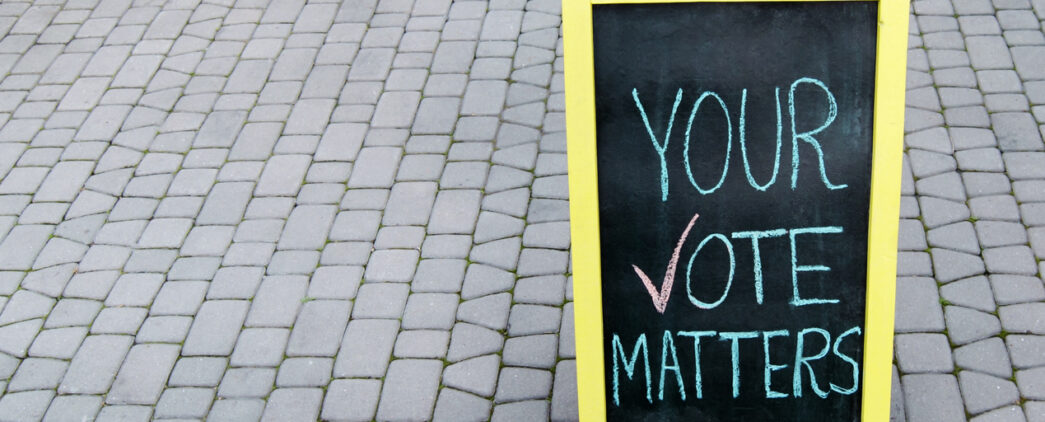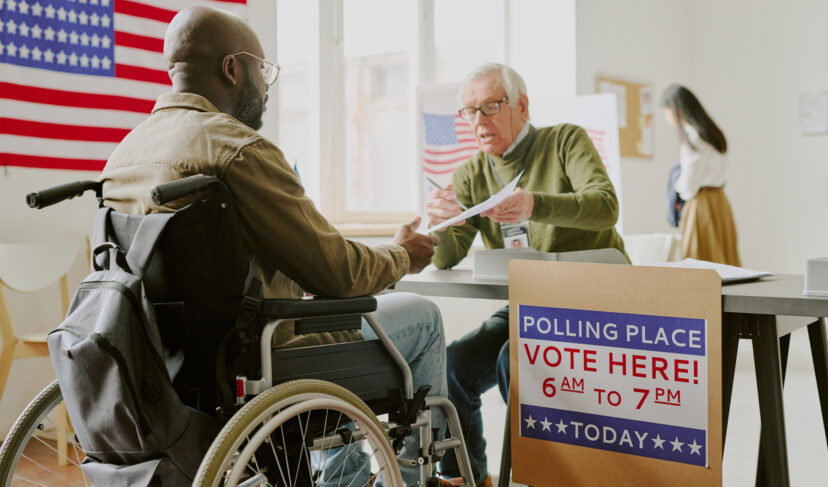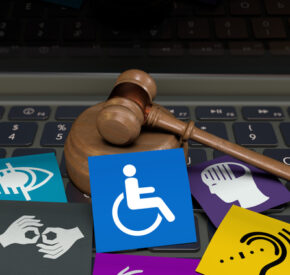Struggling to Find My Voice as a Blind Voter
Accessibility challenges at the polls, from 2016 to the 2024 election

Do you remember Tuesday, November 8, 2016? Most people’s vivid memories of it revolved around its ending; mine revolved around how it began.
We were a happy parade: me with my two boys, ages almost six and one, and a neighbor friend of mine with her one-year-old daughter. We were excitedly going to the poll together.
We signed into our polling place without incident. I was all set to go into the booth and show my older son how far we have come with accessibility in voting. I am blind, so I was supposed to use the talking voting machine extension. (It’s the 21st Century, and I still don’t know why I can’t vote in Braille, which would be more convenient and private. Alas, I digress.)
“We didn’t get much training on that voting machine, and I don’t know how to use it,” the poll worker told me in a panicked voice. “Please don’t make me get it out for you. Can’t your friend help you?”
I had heard of this kind of accessibility intimidation before. I don’t think it’s an exaggeration to call it accessibility intimidation. The poll worker was intimidated by accessible technology, so he was shifting his intimidation to me, the voter. I had heard of voters with disabilities boldly advocating, holding up the line of voters to require accessibility. I longed to be one of them. But at the same time, I had to go to work. My friend had to go to work. Our young children had limits on their patience. All this factored into my thinking as I considered arguing with him about why it was his ‘volunteer’ job to figure it out. Maybe, most importantly of all, I could not see myself holding up a growing line of voters. After all, this was a high-stakes presidential election.
So although I applaud the people who have the time and the courage for accessibility activism, I also didn’t immediately regret that I was not one of them. As often happens due to my medical model upbringing, I worried that my friend thought I was less capable. Most likely the incident had actually given her a social model crash course in disability aggression, or perhaps disability apartheid is a more appropriate phrase, given the systemic inequity of it all.
In the end, she helped me vote. My heart breaks as I consider that my oldest son probably thought I couldn’t vote without her, and we went home. My voting sticker – a print sticker! – felt like my son’s, somehow unearned.
Elections are so fraught now that I wondered if my vote had counted at all. Nothing in that experience had shown me it counted. I felt more and more ashamed that I had not been bold enough to stand up for disability justice. What example had I given my child? Or myself? Although I was sure it was too late, I decided to reclaim my status as an educator, if only a reactive one in this case, and to file a complaint with my county board of elections. To my surprise and relief, I received a deeply apologetic, strongly worded letter back that this should not have happened and that the training for poll workers would better address this in the future. Nevertheless, since that election, I have either filed my ballots by mail with a relative who I know votes the same way I do or showed up at the poll with an assistant. I still haven’t had the courage to return to my polling location on my own.
Once again, the 2024 election has arrived and is a critical one. Once again, I struggled with the potential frustration of holding up a line of voters in the name of disability justice for the chance to exercise my democratic right in the community with my neighbors. Truth be told, because of these fears, I already submitted my mail-in ballot.
But, after recording our ‘Casting a Ballot for Accessibility’ podcast episode, I am rethinking accessible voting. I am now more informed and armed with information and resources I can save in my contacts to help the poll worker and me if we run into trouble. Organizations such as the Center for Civic Design, Microsoft, and Rev-Up have brought accessible voting to the forefront as a requirement for a well-run democracy. People with visible disabilities are proudly working at the polls; representation matters!
Watch out, 2025. I’m showing up by myself. No friends, no kids. I’m showing up in the middle of the day with a fully loaded contact list. And almost a decade later, the poll workers better know what they’re doing! And if they don’t, I will.
___
Kristen Witucki, is a Tamman partner and contributor. A published author and educator, she brings her lived experience and perspective to the Tamman Team





